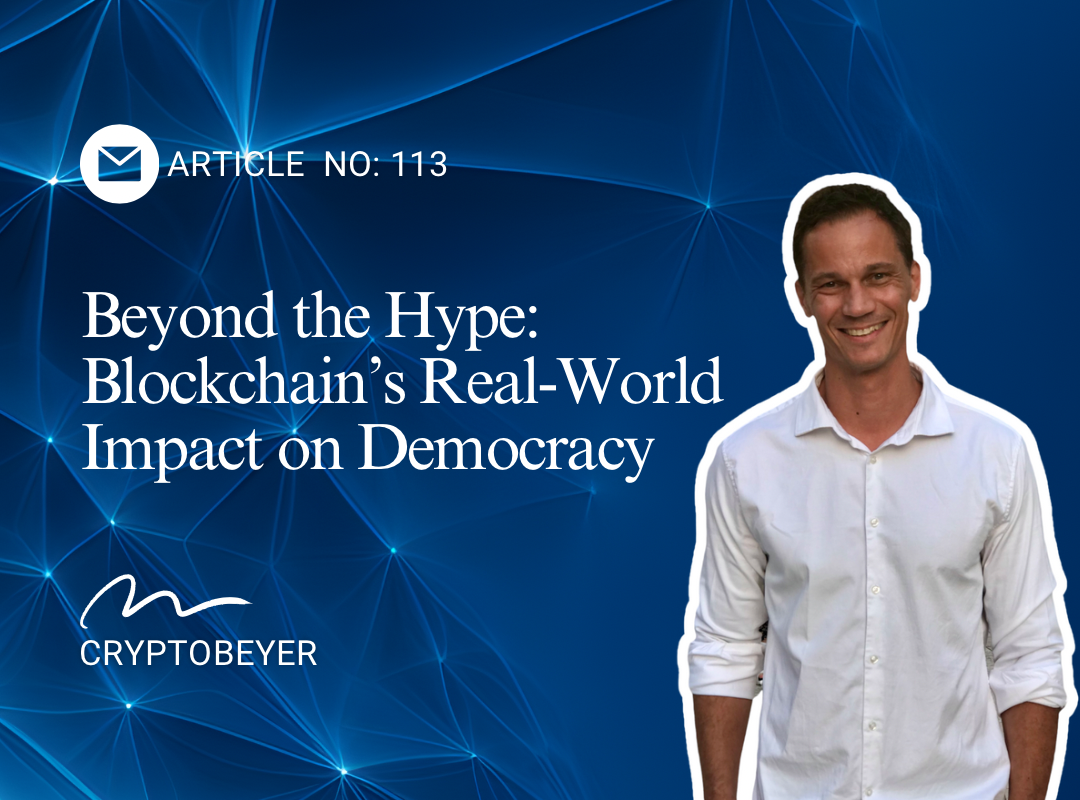Beyond the Hype: Blockchain's Real-World Impact on Democracy
Data and information are everywhere, and we are only getting started. It's becoming too much and complicated. Here's reality: Every day, the internet sees more than 2.5 quintillion bytes of data being produced. This far exceeds what the largest libraries in the world can hold—in one day! The fourth industrial revolution that we are living in is clearly introducing new problems for humanity. Therefore, I say, as we advance technologically, we must also advance in our humanity.
Put simply, data is king, and those who hold it wield immense power. In a digital age where information is currency, who holds the keys, and how do we ensure fairness in its distribution?
Enter blockchain technology, a beacon of hope in our complex, data-driven landscape. This isn't just about a new way to do business or secure transactions; it's about reimagining our societal foundations. Blockchain challenges us to rethink privacy, governance, and equity, offering a glimpse of a world where information flows freely, yet securely.
Blockchain operates without the traditional gatekeepers—no banks, no governmental oversight. It's a radical departure from the norm, promising a shift in how power is distributed. At its heart, blockchain is a narrative of decentralization, a potential counterbalance to the monopolies that dominate our digital and physical realms. It's about democratizing power, ensuring that decisions and benefits are shared more equitably. Sounds good, right?
Yet, we stand at a philosophical crossroads. The promise of blockchain to level the playing fields and distribute power more evenly is profound. However, the quest for decentralization faces its own challenges. Just like water flows and finds its own path, power has a way of spreading out. Even in systems designed to share control evenly, there's a chance that power might just change shape and gather in new places, creating new leaders or entities with more control.
This paradox is central to our journey with blockchain. It forces us to ponder: Can true decentralization exist, or does it merely shift the epicenter of control? More fundamentally, can we, as a society, resist the urge to centralize power, even in systems designed to be leaderless?
Reflecting on this, we need to consider fundamental principles of democracy. The real measure of democracy is the extent of freedom and equality enjoyed by its weakest member. Blockchain stands as a testament to our collective aspiration for a fairer world. It embodies the hope for a system that transcends traditional power structures, where transparency and trust are built into the very fabric of our interactions. Yet, it also serves as a mirror, reflecting our deep-seated tendencies toward control and dominance.
In today's world, filled with new technology and data, it's important to remember that as we grow with technology, we should also grow in kindness and fairness. Technologies such as blockchain have the potential to make our systems more fair and open to everyone. However, the real success of these technologies will be judged by how much they improve the lives of those who have the least. This is a reminder that we should work to ensure the advantages of new developments are available to all, emphasizing that our progress as a community is truly shown by how we help our most vulnerable members.
Let's stay true to the values that help all of us. We should aim for a future where technology brings us together instead of splitting us apart; where the vast amounts of data and information are shared, open, and available to everyone. Data is humanity's treasure. By understanding the complex nature of blockchain, we might discover more than just a change in technology—we could see a restoration of human values. This could be a time where fairness, privacy, and working together are not just things we hope for.

